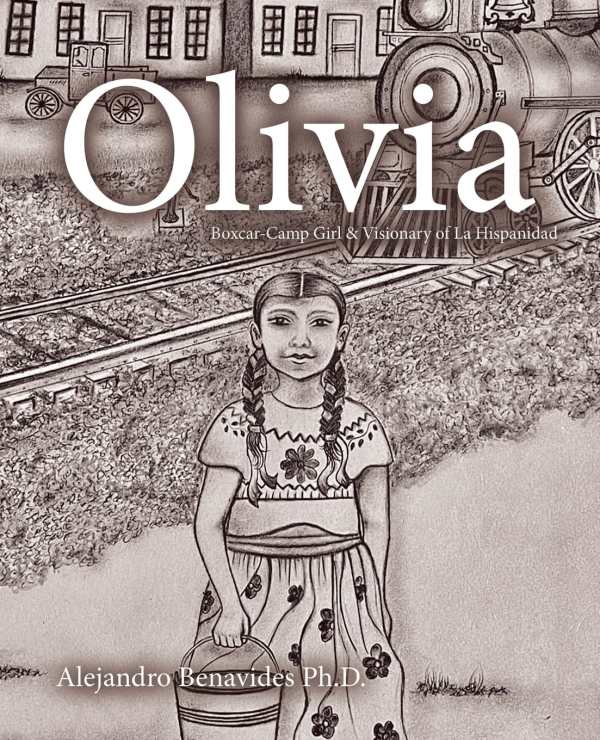
Olivia
Boxcar-Camp Girl & Visionary of La Hispanidad
An edifying, lesson-filled historical novel, Olivia focuses on a girl’s efforts to make her community an equitable one.
Covering a decades-long path toward social equality, Alejandro Benavides’s inspired historical novel Olivia celebrates multiculturalism in the United States.
Olivia is a hyperobservant girl whose family settles in the Chicago suburb of Aurora, Illinois. They live in a boxcar camp located near the Chicago, Burlington and Quincy Railroad passenger train station in the early years of the twentieth century. Life at the boxcar camp is difficult and gritty, with no indoor plumbing, air conditioning, or other practical amenities.
Olivia has a preternatural interest in the cultures of the people who are her neighbors in the railyard community; she’s also fascinated by the families’ internal dynamics. She notes that the issue of the education of non-English-speaking children is politicized, which spurs her to secure equal standing for them in Aurora and beyond. Her motives are pure, though she is sometimes misunderstood. As she grows up and learns more about her own heritage, she becomes a powerful civic leader, witnessing landmark civil rights wins in a time of increased intercultural understanding. A visionary heroine, she works nonstop to open the eyes of those around her to the plights of migrant workers.
Grounded in Bible verses, details about the peaks and valleys in the long pursuit of migrant rights in the US, and the recurrent symbol of the Lucifer hummingbird (“a powerful Aztec symbol of transformation and spiritual growth, as well as being associated with shamanic spiritualism” that appears in Olivia’s dreams, inspiring library research), the novel is both edifying and didactic. Olivia herself, because she is ever curious, becomes a vehicle through whom much is discovered about other cultures and people. Lessons are implied in her own successes: she excels at school, is named valedictorian of her high school, and works toward a PhD.
The chapters are tidy in their progression and are information rich. Their titles have an academic quality that belies the genre, though, as with “Life at the Boxcar Camp” and “A New Hispanic Era.” Further, some also run long and dense, becoming weighed down by all the information that they strive to convey. The crux of the novel, it seems, is in its details, which flesh its themes out in an unflinching manner, exposing prejudice and dehumanization throughout.
An often bleak but ultimately hopeful historical novel, Olivia wraps up its coming-of-age story in a potent history lesson about inequality in the US.
Reviewed by
Ryan Prado
Disclosure: This article is not an endorsement, but a review. The publisher of this book provided free copies of the book and paid a small fee to have their book reviewed by a professional reviewer. Foreword Reviews and Clarion Reviews make no guarantee that the publisher will receive a positive review. Foreword Magazine, Inc. is disclosing this in accordance with the Federal Trade Commission’s 16 CFR, Part 255.
